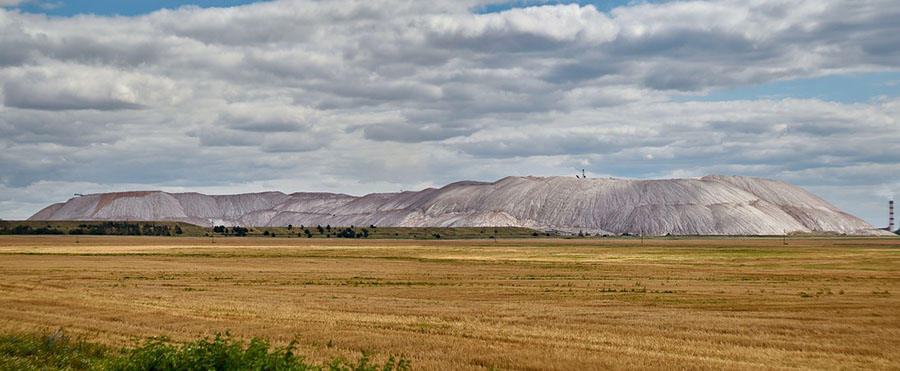New Potash Czar in the Making
Source: Edmonton Journal, David Marples (6/20/11)
"Russian tycoon Suleiman Kerimov is about to challenge PotashCorp's hegemony as the world's largest potash producer."
Edmonton Journal, David Marples
Last week, Russian tycoon Suleiman Kerimov arrived in Minsk, ostensibly to discuss the sale of the Belarusian potassium company (Belkali) with President Alexander Lukashenko. By the end of June, Kerimov will complete the merger of Urals Potash, with Silvinit, Russia's second-largest potash company. That move will present a challenge to the largest potash company in the world, the PotashCorp.
However, its hegemony may be about to change thanks to a financial crisis of the third-largest producer of potash, the Republic of Belarus. Following the devaluation of its currency by 56% last month, Belarus opted to sell off its most profitable company, Belaruskali.
There are in fact two companies: Belaruskali, the domestic firm, and the Belarusian Potash Company, which deals with exports. The latter is co-owned: 45% by the Belarusian state, five% by Belarusian Railroads, and 50% by the Urals Potash Company. The offer is only for the domestic company.
The question then is its value. At a news conference in Minsk on June 17, Lukashenko announced that if a bidder had $30 billion, then the company could be bought on the spot. The Belarusian leader is obviously inflating the price, unless the figure includes both domestic and export companies, but the latter is not his to sell.
Still, Kerimov, a seasoned and wily businessman with a net worth of $5.5 billion, is unlikely to toy with the figure of $30 billion.
If the buyout is successful, Kerimov will own the largest potash company in the world, and likely covet PotashCorp, which can hardly be unaware of the potential threat.
Last week, Russian tycoon Suleiman Kerimov arrived in Minsk, ostensibly to discuss the sale of the Belarusian potassium company (Belkali) with President Alexander Lukashenko. By the end of June, Kerimov will complete the merger of Urals Potash, with Silvinit, Russia's second-largest potash company. That move will present a challenge to the largest potash company in the world, the PotashCorp.
However, its hegemony may be about to change thanks to a financial crisis of the third-largest producer of potash, the Republic of Belarus. Following the devaluation of its currency by 56% last month, Belarus opted to sell off its most profitable company, Belaruskali.
There are in fact two companies: Belaruskali, the domestic firm, and the Belarusian Potash Company, which deals with exports. The latter is co-owned: 45% by the Belarusian state, five% by Belarusian Railroads, and 50% by the Urals Potash Company. The offer is only for the domestic company.
The question then is its value. At a news conference in Minsk on June 17, Lukashenko announced that if a bidder had $30 billion, then the company could be bought on the spot. The Belarusian leader is obviously inflating the price, unless the figure includes both domestic and export companies, but the latter is not his to sell.
Still, Kerimov, a seasoned and wily businessman with a net worth of $5.5 billion, is unlikely to toy with the figure of $30 billion.
If the buyout is successful, Kerimov will own the largest potash company in the world, and likely covet PotashCorp, which can hardly be unaware of the potential threat.


























































